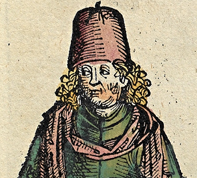Why YSK: I’ve noticed in recent years more people using “neoliberal” to mean “Democrat/Labor/Social Democrat politicians I don’t like”. This confusion arises from the different meanings “liberal” has in American politics and further muddies the waters.
Neoliberalism came to the fore during the 80’s under Reagan and Thatcher and have continued mostly uninterrupted since. Clinton, both Bushs, Obama, Blair, Brown, Cameron, Johnson, and many other world leaders and national parties support neoliberal policies, despite their nominal opposition to one another at the ballot box.
It is important that people understand how neoliberalism has reshaped the world economy in the past four decades, especially people who are too young to remember what things were like before. Deregulation and privatization were touted as cost-saving measures, but the practical effect for most people is that many aspects of our lives are now run by corporations who (by law!) put profits above all else. Neoliberalism has hollowed out national economies by allowing the offshoring of general labor jobs from developed countries.
In the 80’s and 90’s there was an “anti-globalization” movement of the left that sought to oppose these changes. The consequences they warned of have come to pass. Sadly, most organized opposition to neoliberal policies these days comes from the right. Both Trump and the Brexit campaign were premised on reinvigorating national economies. Naturally, both failed, in part because they had no cohesive plan or understanding that they were going against 40 years of precedent.
So, yes, establishment Democrats are neoliberals, but so are most Republicans.


I’m writing a thesis that has significant support that the United States is and has, with the exception of about 30 years of progressive policy, been a plutocracy. The divisions in put country are by design. Division among racial lines, political affiliation, religious affiliation, professions, etc. are used to prevent the unification of the laboring class and dissuade us from collectively recognizing and challenging the status quo. The working people of this country have far more in common than not, but the political and moneyed class sow division via these wedge issues to prevent radical change - which would likely shift the US toward Scandinavian style social democracy.
Just gave you a follow, so that hopefully when your thesis wraps up maybe you could post an identity sanitized version to read on? I’d really like to give it a look through and see your conclusions!
It’s not a unique problem to US either. Every country I lived in seems to suffer from this in some form or shape. I’d even argue that people need some sort of conflict and the manipulators are taking advantage of this.
Distracting and confusing the peasants is such a natural tool in our current society too, where outrage, click bait and manufactured conflict aligns with attention-based business (i.e. ads). So everything just works naturally.
People need to be mindful and aware of this so thanks for writing about it!